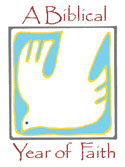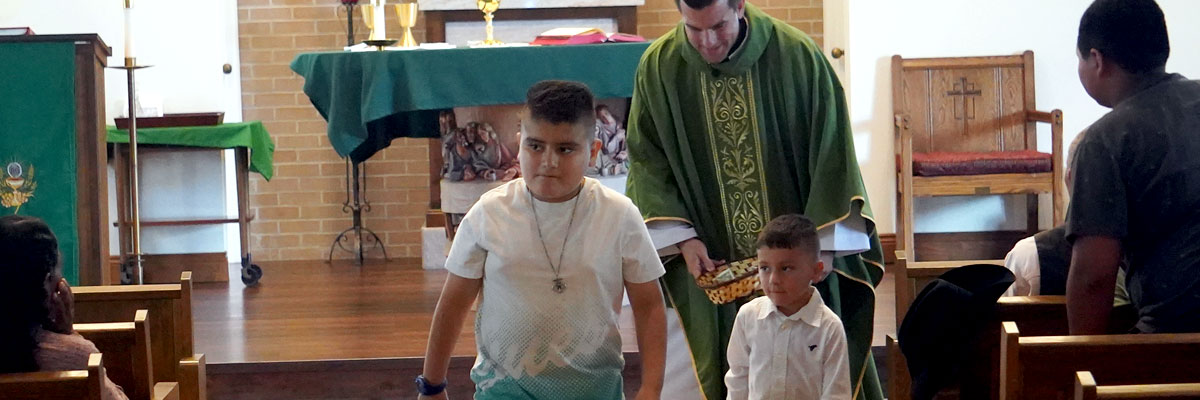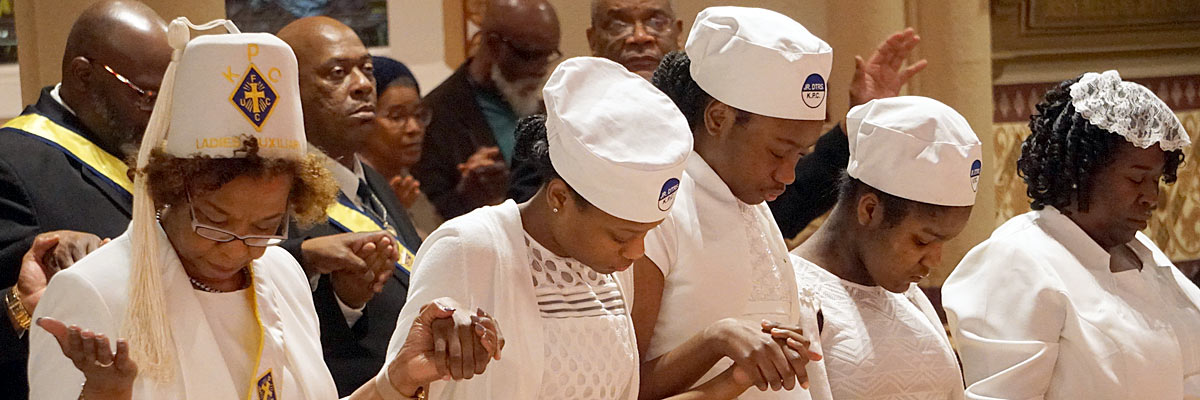Official Website of the
Catholic Diocese of Little Rock
Abraham and Sarah answer call of faith
Published: January 26, 2013
This is the fourth column in a 14-part series
By Clifford M. Yeary
Associate Director, Little Rock Scripture Study
As the title "Genesis" implies, the first book of the Bible is concerned with beginnings. In its opening verses the heavens and the earth are created and pronounced good. Man and woman are brought into being as beautiful reflections of their Creator. Genesis, read not as science, but as revelation, informs us of God's purpose in creating the universe and our calling to serve God within it (1:1-31).
 Genesis also begins the account of evil in the world, when humans are seduced by a desire to be their own gods, proudly making "good and evil" subject to private rationalization (3:1-7). Envy soon follows pride and brings forth murder (4:1-16). Eventually the entire earth is infected by evil. "The Lord regretted making human beings on the earth, and his heart was grieved" (6:6).
Genesis also begins the account of evil in the world, when humans are seduced by a desire to be their own gods, proudly making "good and evil" subject to private rationalization (3:1-7). Envy soon follows pride and brings forth murder (4:1-16). Eventually the entire earth is infected by evil. "The Lord regretted making human beings on the earth, and his heart was grieved" (6:6).
When we read the accounts of Abraham and Sarah's faithful response to God's calling, it is important that we view it in the context of a world that had run amok. Even after God sends a flood to destroy the world, saving only a single family and a remnant of the earth's creatures, evil returns to creation (9:20-28).
In the most subtle beginning of all in this book of beginnings, God begins the plan to mend the world and to redeem humanity by calling on Abram (Abraham) and his wife Sarai (Sarah) to leave their home and begin a journey of faith with God.
Many today might view the world as rife with evil and strewn with chaos. But hopefully some of us will dare to hear ourselves called to be sources of goodness, peace and healing in an effort to right the world. This was God's call to Abraham and Sarah.
"The Lord said to Abram: 'Go forth from your land, your relatives, and from your father's house to a land that I will show you. I will make of you a great nation, and I will bless you; I will make your name great, so that you will be a blessing. I will bless those who bless you and curse those who curse you. All the families of the earth will find blessing in you. Abram went as the Lord directed him'" (Genesis 12:1-4).
Beginning with St. Paul, Christians have always understood the promise to Abraham that, "all the families of the earth will find blessing in you," as a prophetic indication that God's plan of redemption was universal, intended for all peoples, and not just for Abraham's physical descendants (Galatians 3:8-9).
That is the broad scope of what Christians see in God's promise to Abraham. But for the aged Abraham and Sarah, they had not yet even a single child to inaugurate the promise of becoming a great nation (Genesis 16:1). As great as God's promises were to them, responding to God's call required tremendous faith.
Their journey through the land promised to them brought them no permanent home, and when they entered Egypt Abraham's cowardly offering of Sarah to Pharaoh (Genesis 12:10-20) must have been a great trial to Sarah's faith in her husband! But Abraham's faith would be most severely tested after Sarah bears a son in her old age: Isaac.
"God said: Take your son Isaac, your only one, whom you love, and go to the land of Moriah. There offer him up as a burnt offering on one of the heights that I will point out to you" (Genesis 22:2).
Only after Abraham binds Isaac to the kindling and raises his knife to slay him does an angel of God prevent the horrific deed. God once again renews the promise to Abraham. His descendants will be countless and all nations of the earth will find blessing in Abraham (Genesis 22:16-18).
What begins with Abraham is not only the beginning of God's plan of redemption for humanity, but also of the oft repeated scriptural theme of a "calling" from God. From Abraham, through Moses, the judges of Israel, David, the prophets, and the New Testament disciples, Scripture is filled with accounts of God personally calling individuals to help fulfill God's redemptive will, often with little personal reward for those who accept their calling.
In this Year of Faith, we are reminded by Abraham and Sarah of our own calling, announced in our baptism, to be prophets, priests and royalty in service to the Good News of Jesus Christ. We are to be good news to the world.
Study Questions
- Where do you most clearly see the goodness God intended creation to be?
- What was God beginning with the call of Abraham and Sarah (Genesis 12)?
- In what ways do you feel yourself called by God?
- What does St. Paul say is the significance of Abraham to Christians (Romans 4:13-25; Galatians 3:1-14).
This article was originally published in Arkansas Catholic Jan. 26, 2013. Copyright Diocese of Little Rock. All rights reserved. This article may be copied or redistributed with acknowledgement and permission of the publisher.









